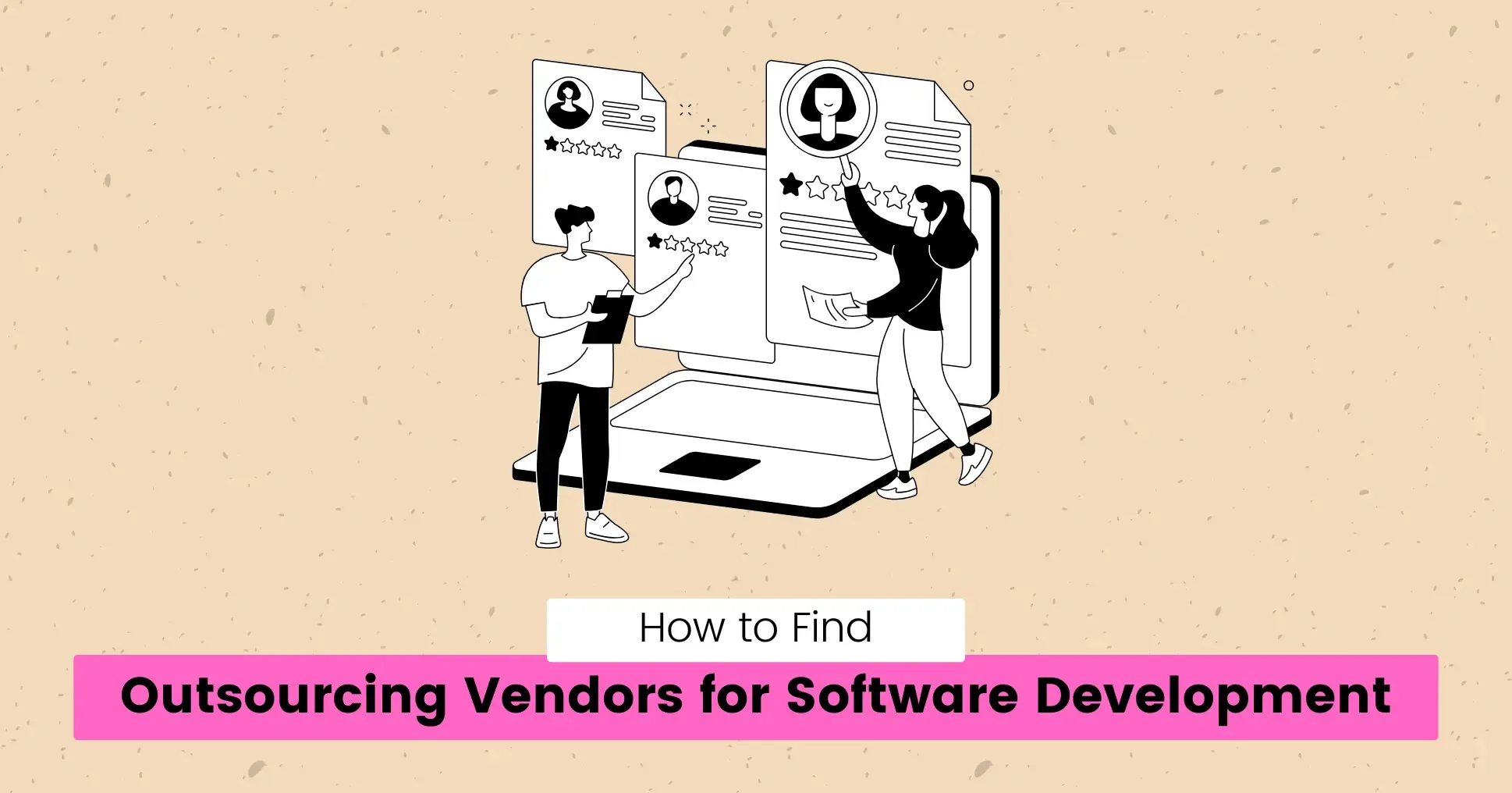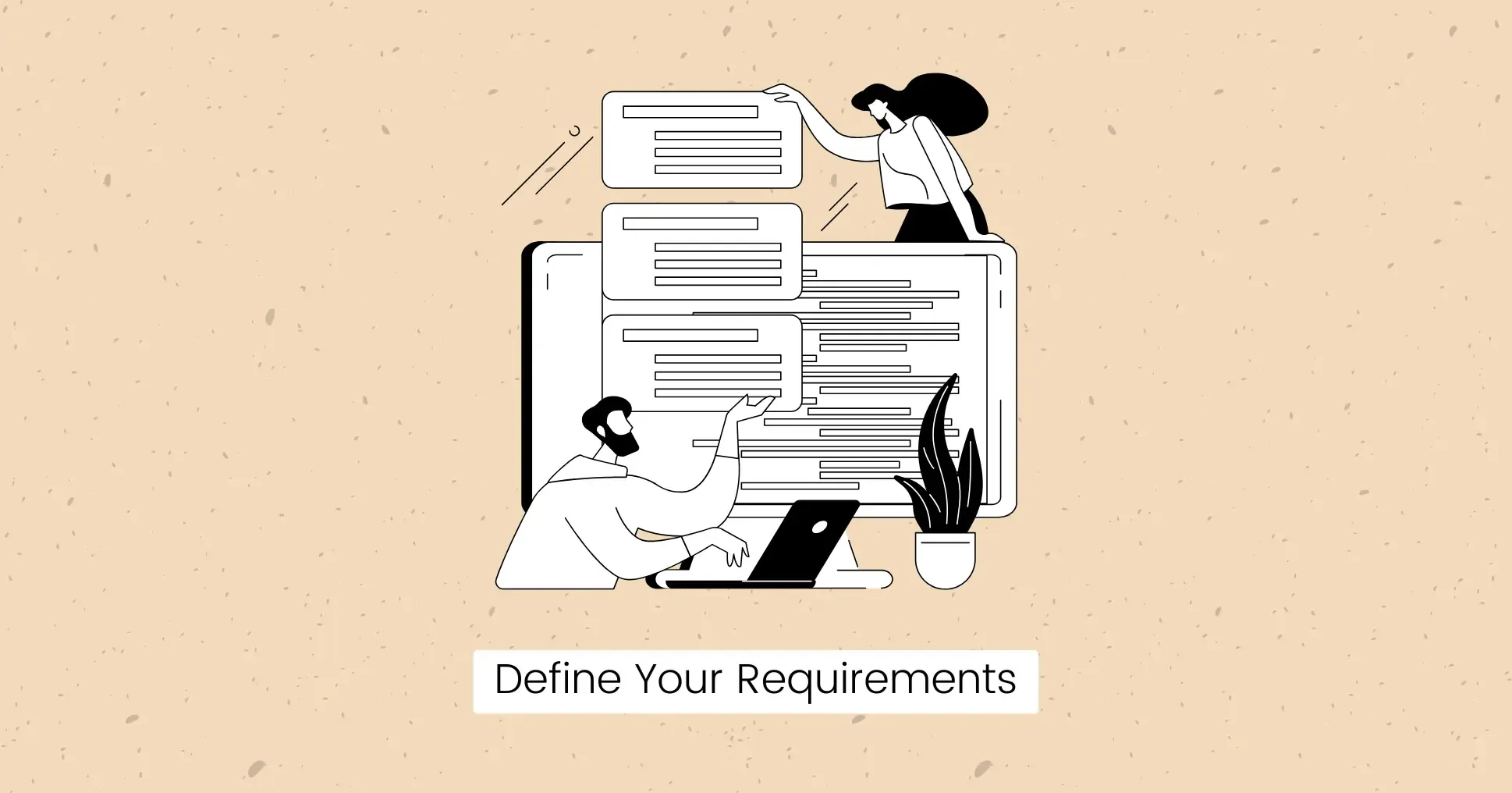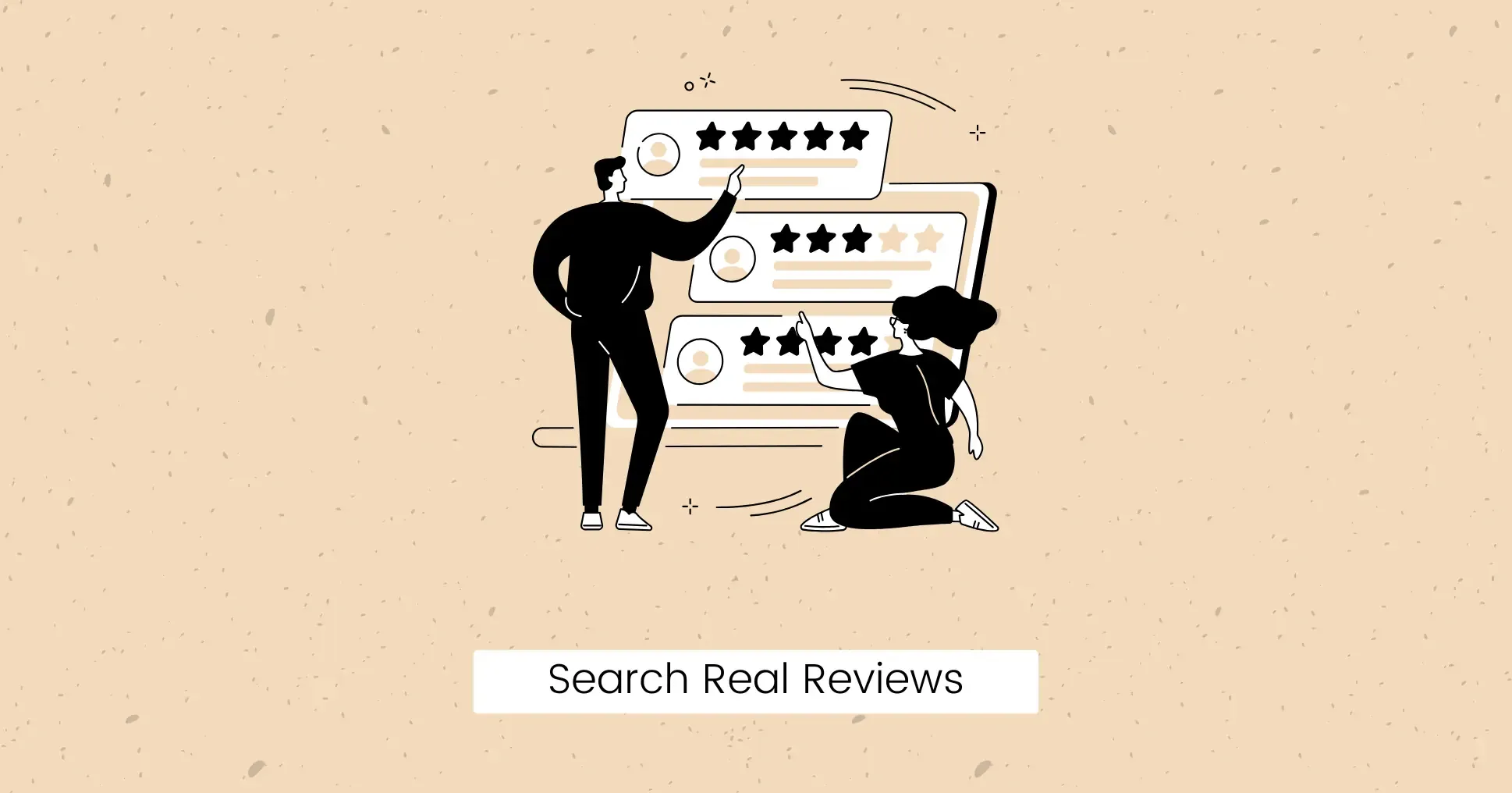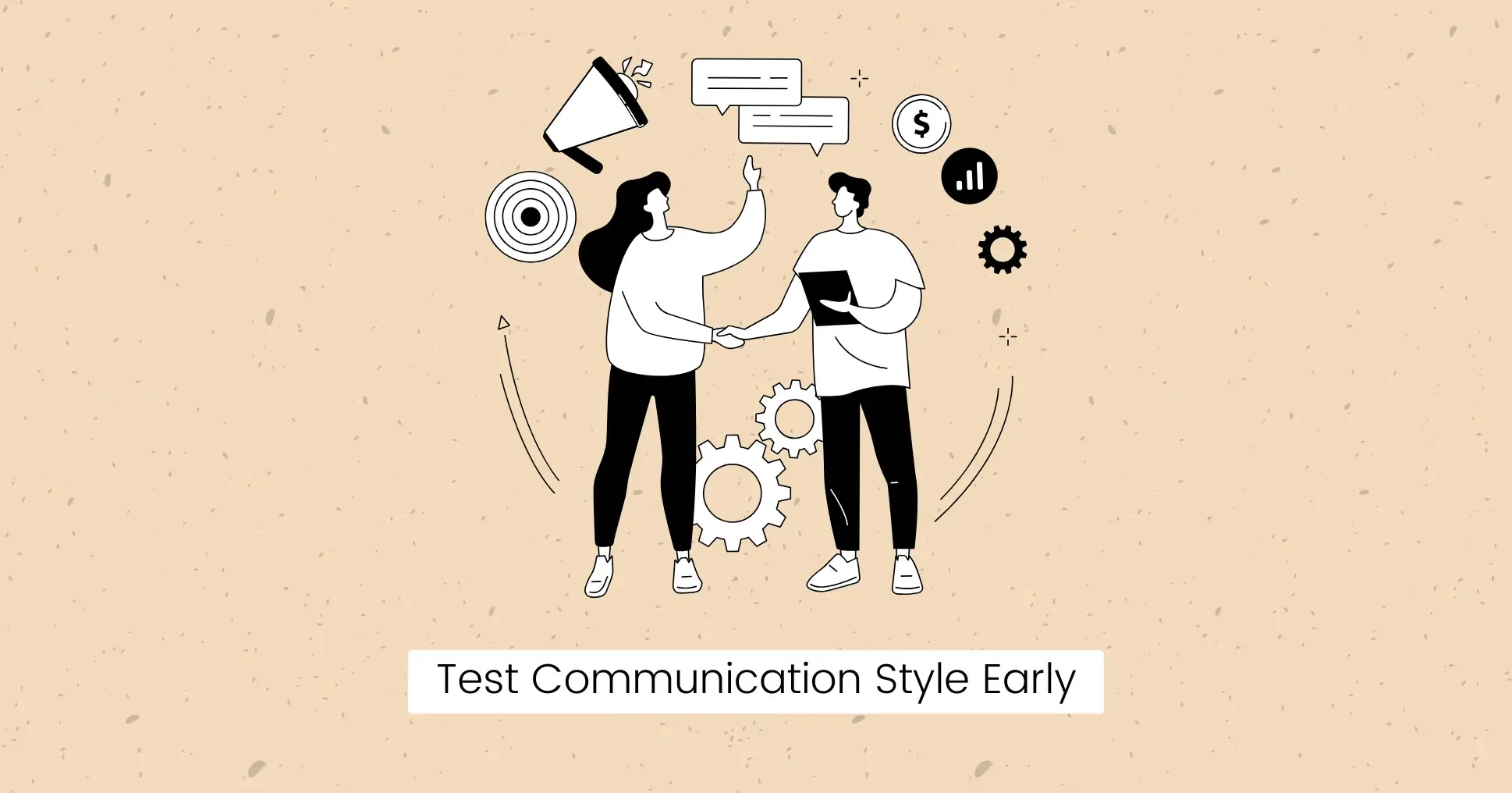How To Find Outsourcing Vendors for Software Development (2025)

Do you need a reliable software development outsourcing vendor but don’t know where to start?
Businesses need partners that can adapt and communicate effectively as remote work grows and technology stacks advance.
Finding a vendor that matches your project’s goals is critical to stand out from competitors, whether you’re a small business wanting to scale or a large enterprise simplifying operations.
The right partner can save you time, money, and produce high-quality results, but picking the wrong one might lead to delays and wasted resources.
So, how do you filter through hundreds of options to find the best fit?
What criteria should you prioritize when outsourcing custom software development ?
This guide provides practical strategies for shortlisting vendors, avoiding costly mistakes, and building a lasting partnership.
You’ll learn what to look for, how to ask the right questions, and finalize agreements that protect your interests and help you focus on what matters: getting quality software on time.
Let’s get started.
Strengthen Your Team with Experts
Looking for specialized skills for your software project? Our experienced team integrates seamlessly and moves your project forward. Contact us for customized solutions!

Why Outsourcing Software Development Works
When you operate a business, there are times when you may have more projects than your team can handle.
Maybe there’s a sudden increase in clients, or a project requires a niche technology that your core team isn’t specialized in.
Outsourcing allows you to take on those extra projects without hiring full-time staff, which is more cost-effective.
For Example:
Imagine your company needs a custom inventory system with AI forecasting.
This is a feature that your internal team had never built before.
You can partner with an external contractor who specializes in supply-chain tech.
They will integrate the AI backend, allowing your team to focus on the front end and client relationships.
You won’t have to hire a full-time AI developer for a one-off project.
In addition to being cost-effective, there are many reasons to outsource web development services .
Such as:
- Faster Turnaround: Development can continue around the clock if you outsource to a remote team in a different time zone. For instance, your internal team works during the day, and the outsourced team works on the same project at night. This can speed up delivery times and bring your product to market faster.
- Access to Niche Expertise: You can access global talent and collaborate with some of the best software development companies . Partnering with a specialized vendor means the job is done without your team learning it from scratch. This helps maintain quality and client trust, both of which are vital for success.
- Risk mitigation: If a project is particularly large or complex, dividing the work between your team and an outsourced team lowers the risk of burnout and keeps the project on track. If one team encounters an issue, the other can step in.
- Flexibility: You can hire specific roles or project-based skill sets to meet your requirements without making long-term commitments. This allows you to scale your team up or down while maintaining speed and quality.
- Client Satisfaction: Sometimes, clients have strict deadlines. By outsourcing, you can promise realistic timelines without burdening your team. This reliability fosters client connections and leads to repeat business.
Let's Start a Conversation
Experience our communication style firsthand. Schedule a discovery call to discuss your project and see how we can help bring your vision to life.

How to Find the Right Outsourcing Vendors
Finding a reliable outsourcing partner for software development is not just about searching online and picking the cheapest option.
You need to carefully consider different factors to save time, money, and headaches.
Here’s how you can do it:
Define Your Requirements

Most projects fail because expectations are not clear.
Before searching for vendors, define exactly what you need.
- The Exact Problem You’re Solving: For example, building a real-time chat feature for your mobile app.
- Your Dealbreakers: Clearly state your desired technology stack and request daily updates.
- Your Budget Range: Don’t use a fixed number, leave room for negotiation.
Tip: Good vendors respect specificity. It filters out those who overpromise or lack focus. If they don’t ask strategic questions about your goals and only take your feature list, they might not be the right fit.
Search Real Reviews

A Google search will show thousands of companies, but not all are trustworthy.
Instead, check:
- Clutch and GoodFirms: These websites enable you to compare various vendors by region, industry, ratings, and other factors. They also validate client reviews.
- LinkedIn: Look at the vendor’s employees, skills, and references.
- Freelance Sites: Check platforms like Upwork or Fiverr.
- **Website Creation Agencies :** Look for client testimonials to find reputable agencies.
- Referrals: Ask other business owners or developers for recommendations.
Tip: Don’t just trust star ratings. Read detailed reviews to see if the company has developed tech solutions similar to yours.
Look for Niche Experts

The best vendors specialize in one thing:
- Find a team of niche experts in specific technologies. They will have more experience with industry-specific software solutions.
- Check their website or blog to see if they write detailed posts about their niche or contribute to open-source projects in that field.
Tip: Ask about the kind of project they’d never take on. Reliable vendors admit their limitations.
Review Their Work Before Seeing Portfolios
Portfolios display successfully carried out results and best projects, but you need to see their development process.
To do this, look for:
- Clean Code: Ask for a code sample from a past project; even a small snippet will do.
- Problem-Solving Skills: Request a 30-minute screen share where they walk through how they debugged a tricky problem.
- Project Management: Do they use Agile methodologies? How do they manage tasks and track progress?
- Quality Assurance: What software testing procedures do they use?
- Maintenance: How do they handle bugs, updates, and support?
- Check their GitHub profile: Active profiles equal transparency.
Tip: Don’t trust vendors who refuse to show how they work (not just what they’ve built). A good vendor will explain the problems they solved, not just show pretty screenshots.
Test Communication Style Early

Bad communication leads to failed projects. Before signing a contract, test their communication style:
- Send a simple request, such as: “Can you explain how you’d handle a two-week delay caused by a third-party API?”
- Watch their response time and clarity. Do they reply quickly and clearly? Do they ask relevant questions or just say yes to everything?
Tip: Use the first email or phone call to assess their communication style. If you’re dissatisfied right now, it’ll be even worse later.
Interview Their Developers, Not Just the Sales Team
Many outsourcing service providers have great salespeople but inexperienced developers. Before making a decision:
- Request to meet the actual developers.
- Determine if they understand your industry, business processes, and project requirements.
Tip: If a vendor refuses to let you speak with developers, that’s a red flag. They may be subcontracting or using junior devs without informing you.
Ask for Their Red Flags
It is important to understand the work culture of your outsourcing company. During the interview, ask:
- What’s a client’s behavior that makes them walk away from a project?
- A past project where things went wrong and how they fixed it.
- How do they deal with scope changes?
Tip: Skilled professionals will share honest stories instead of giving ambiguous answers.
Final Words
A great outsourcing vendor is not just a coder but a valuable partner who will help you achieve your goals.
Following these steps, you can find a vendor who provides long-term value and reliability.
Take your time, test them before committing, and prioritize real-world experience over fancy sales pitches.
Consult with experienced professionals and make your outsourcing projects affordable and successful.
FAQs
What is the best business model for outsourcing custom development?
The dedicated team model is often best for custom development, offering flexibility and ongoing collaboration.
What happens if a vendor fails to meet performance standards?
Organizations may issue corrective action plans, renegotiate contracts, or consider alternative vendors if performance is unsatisfactory.